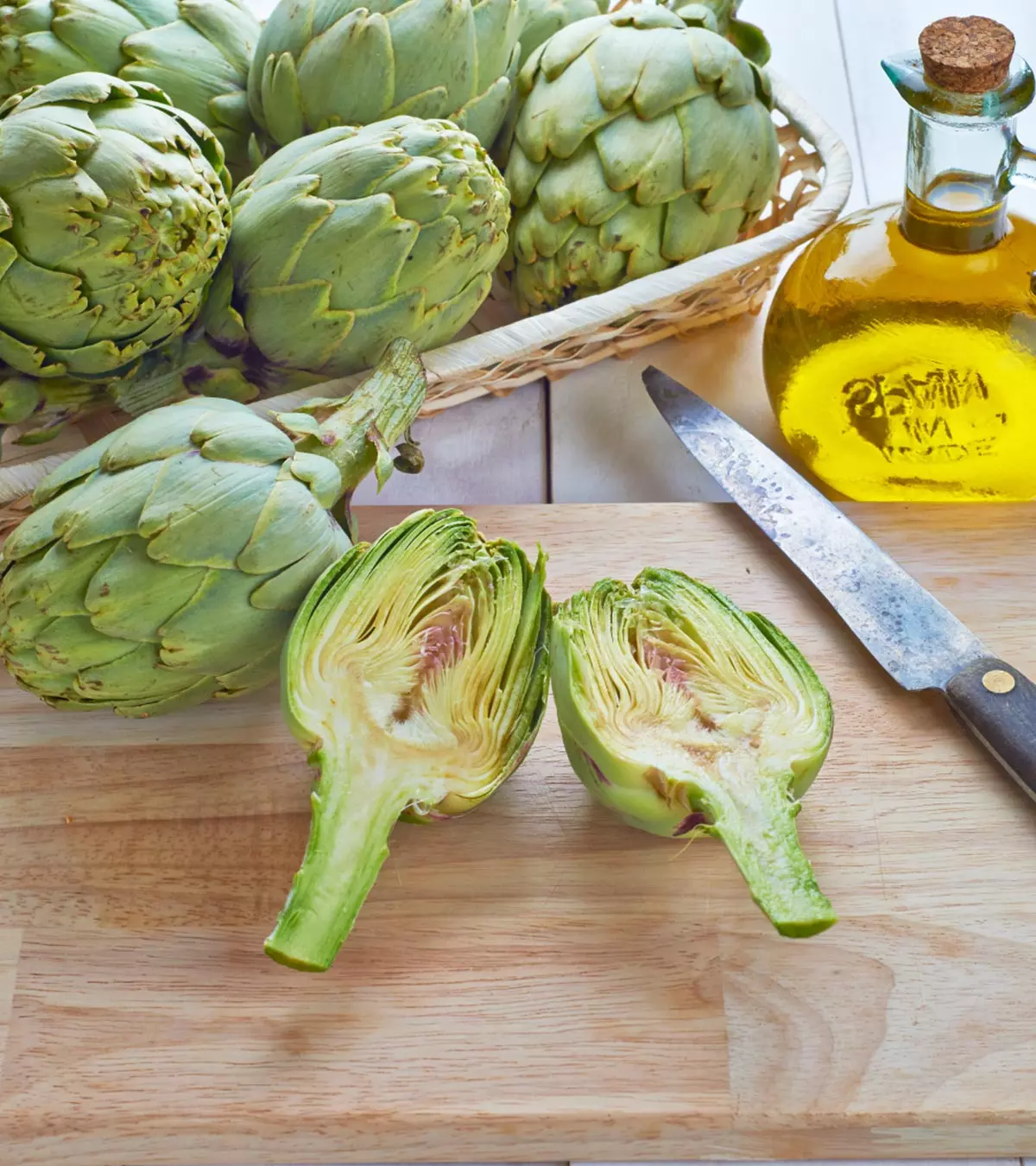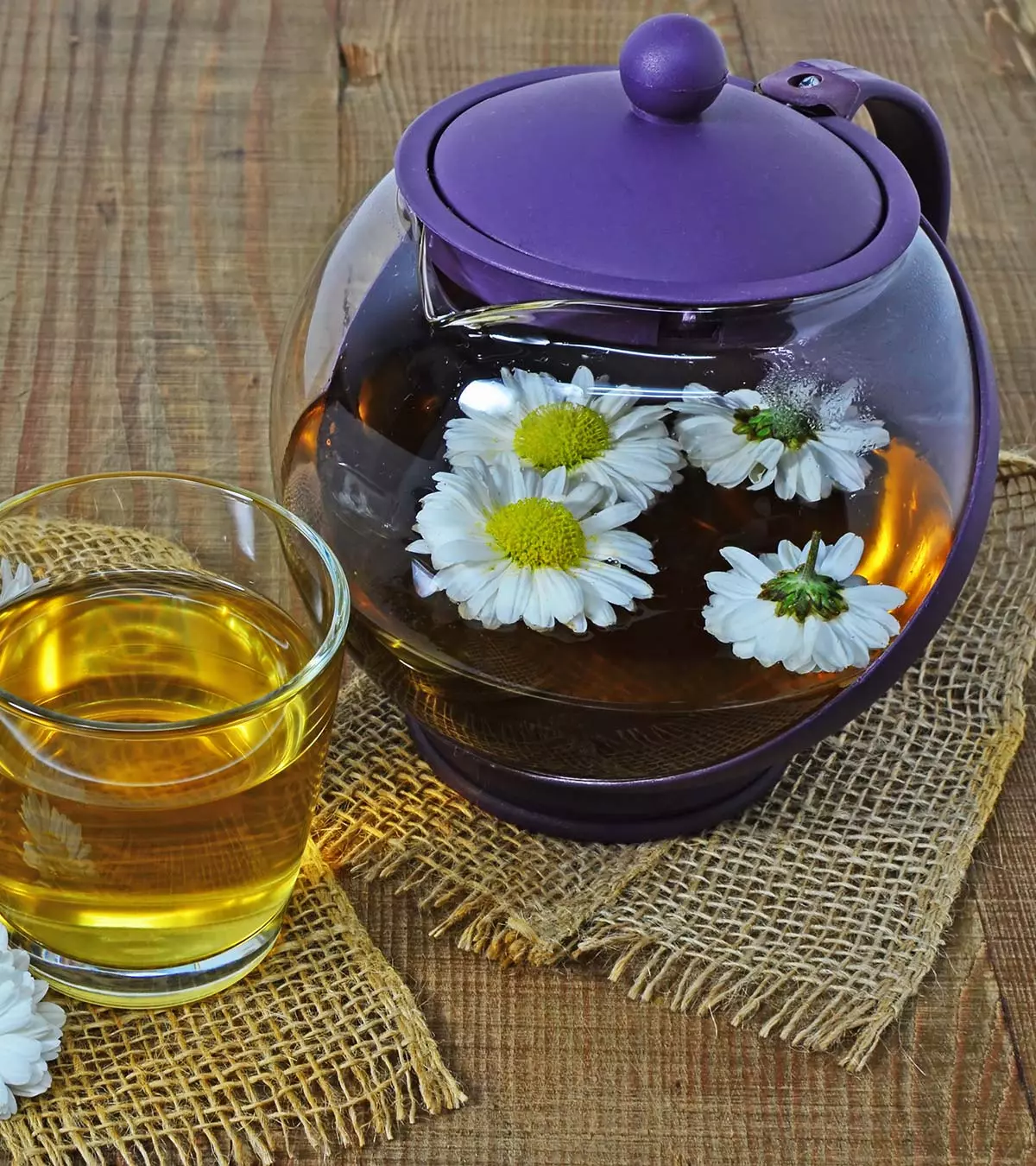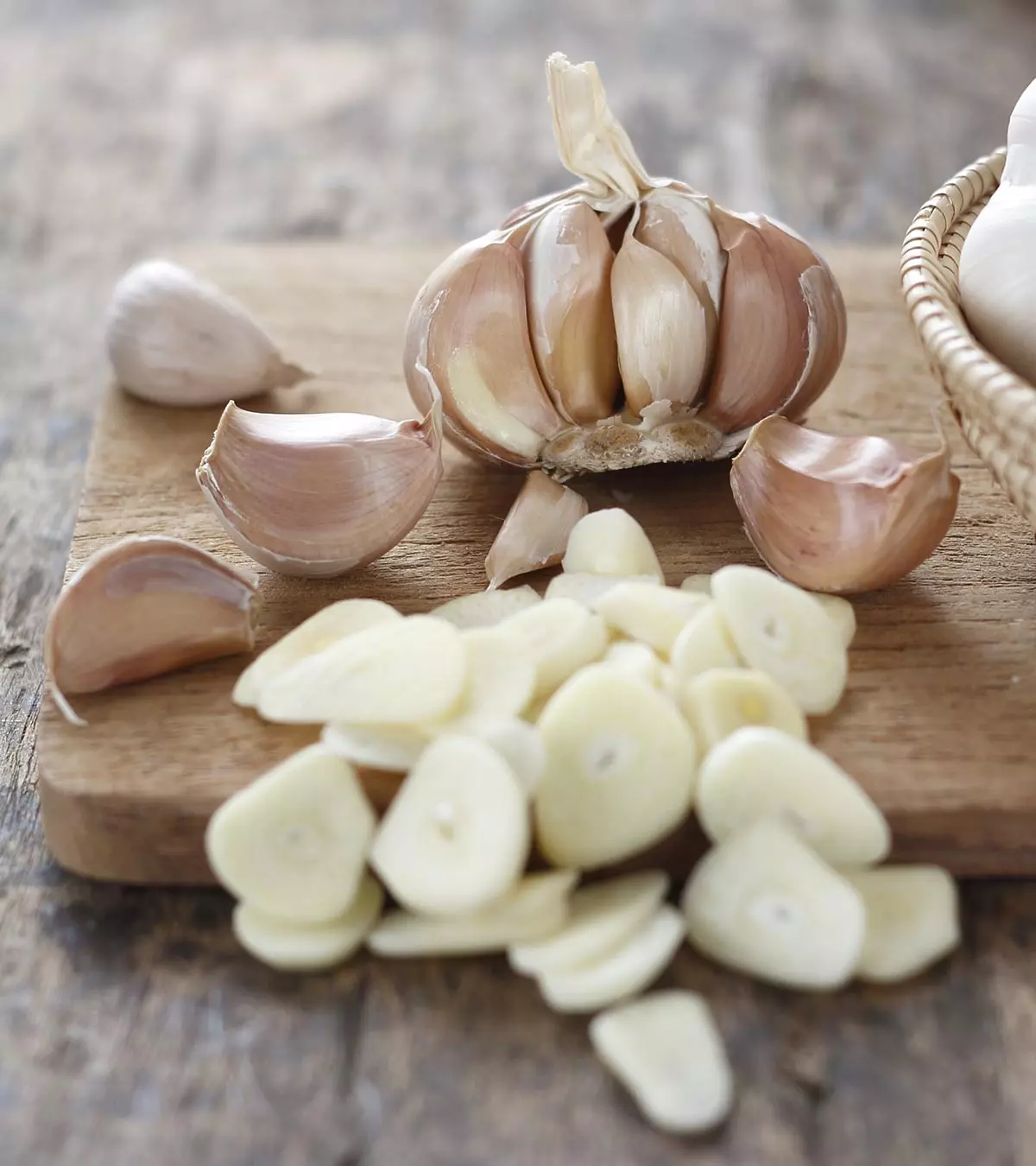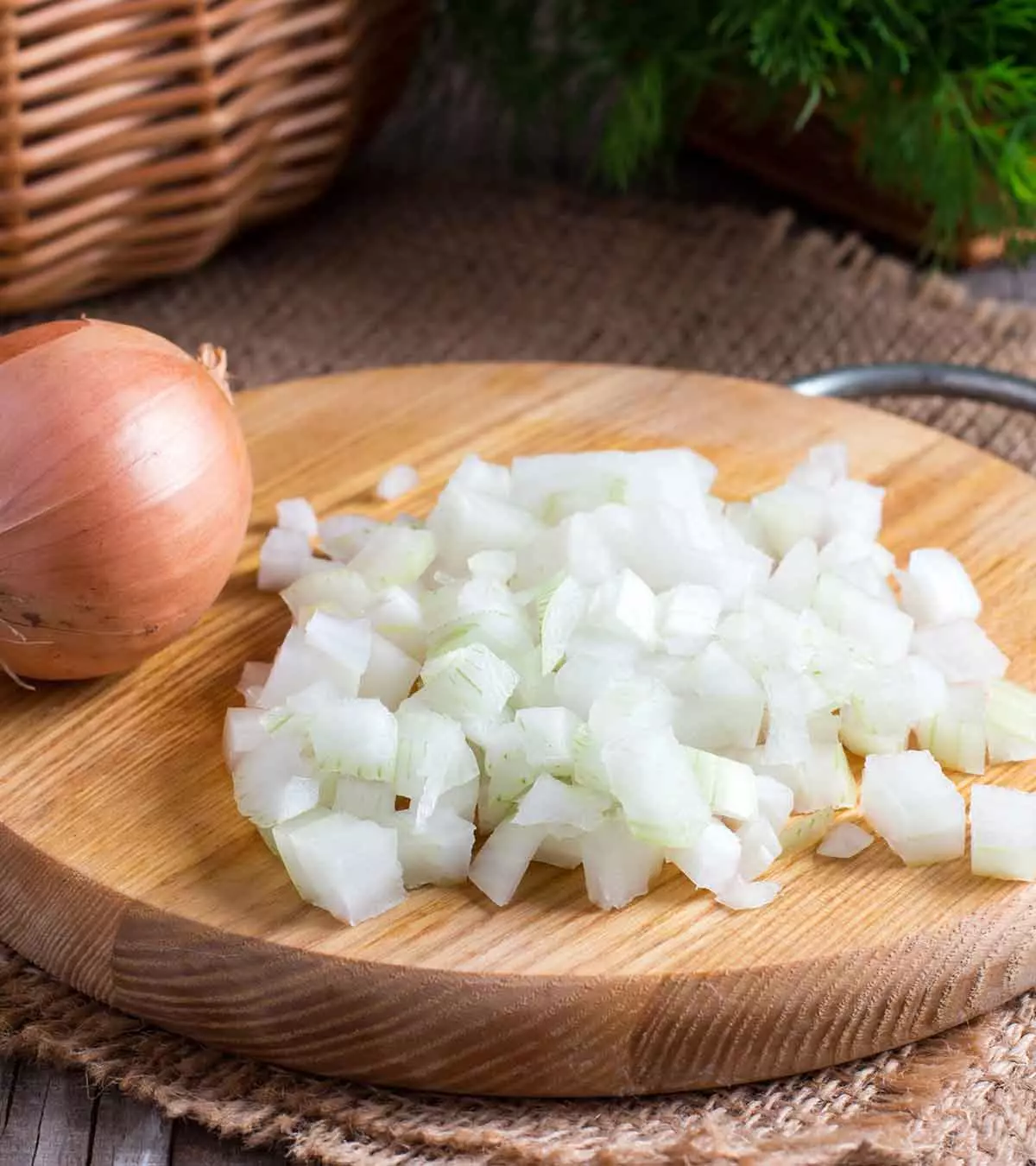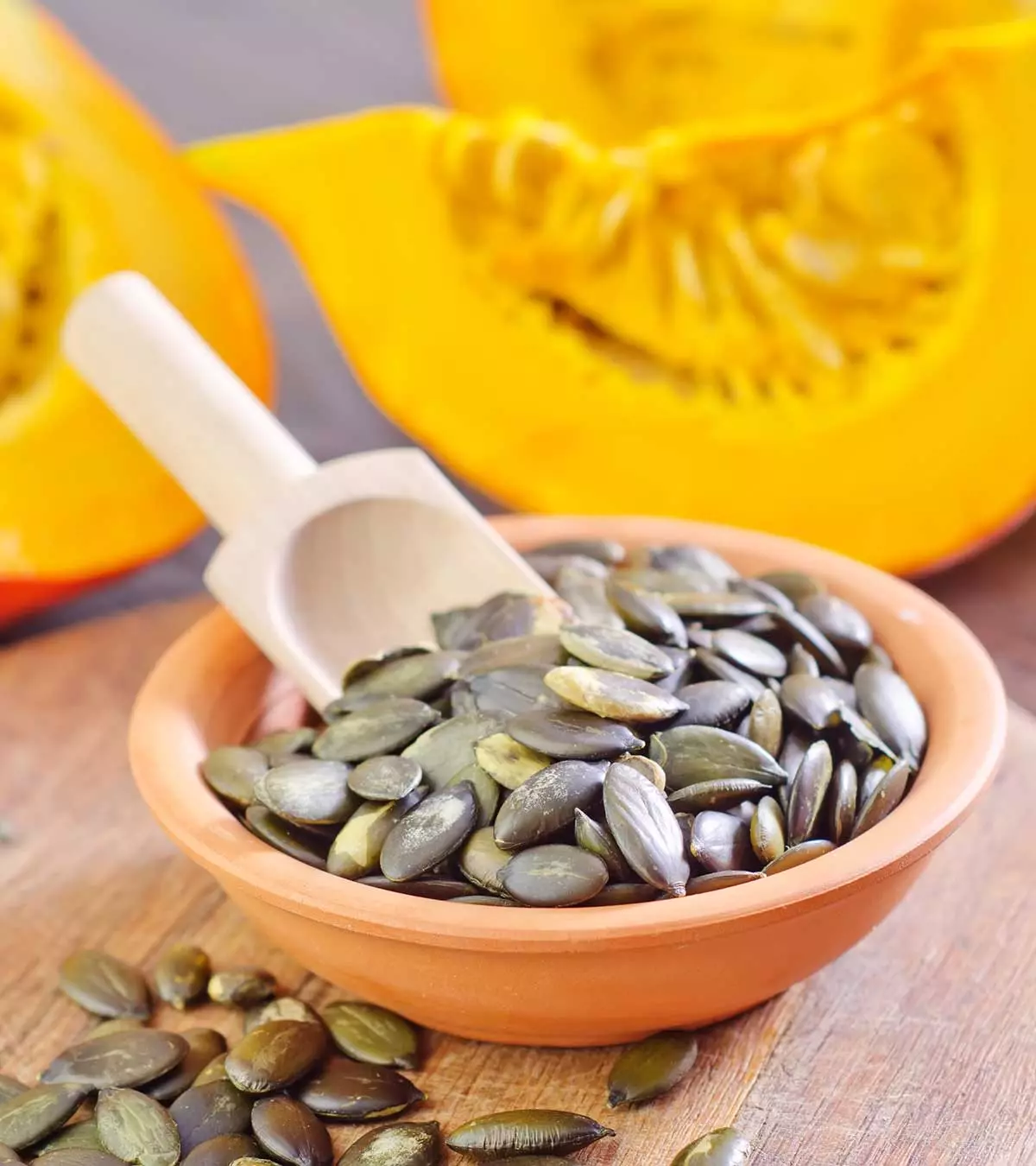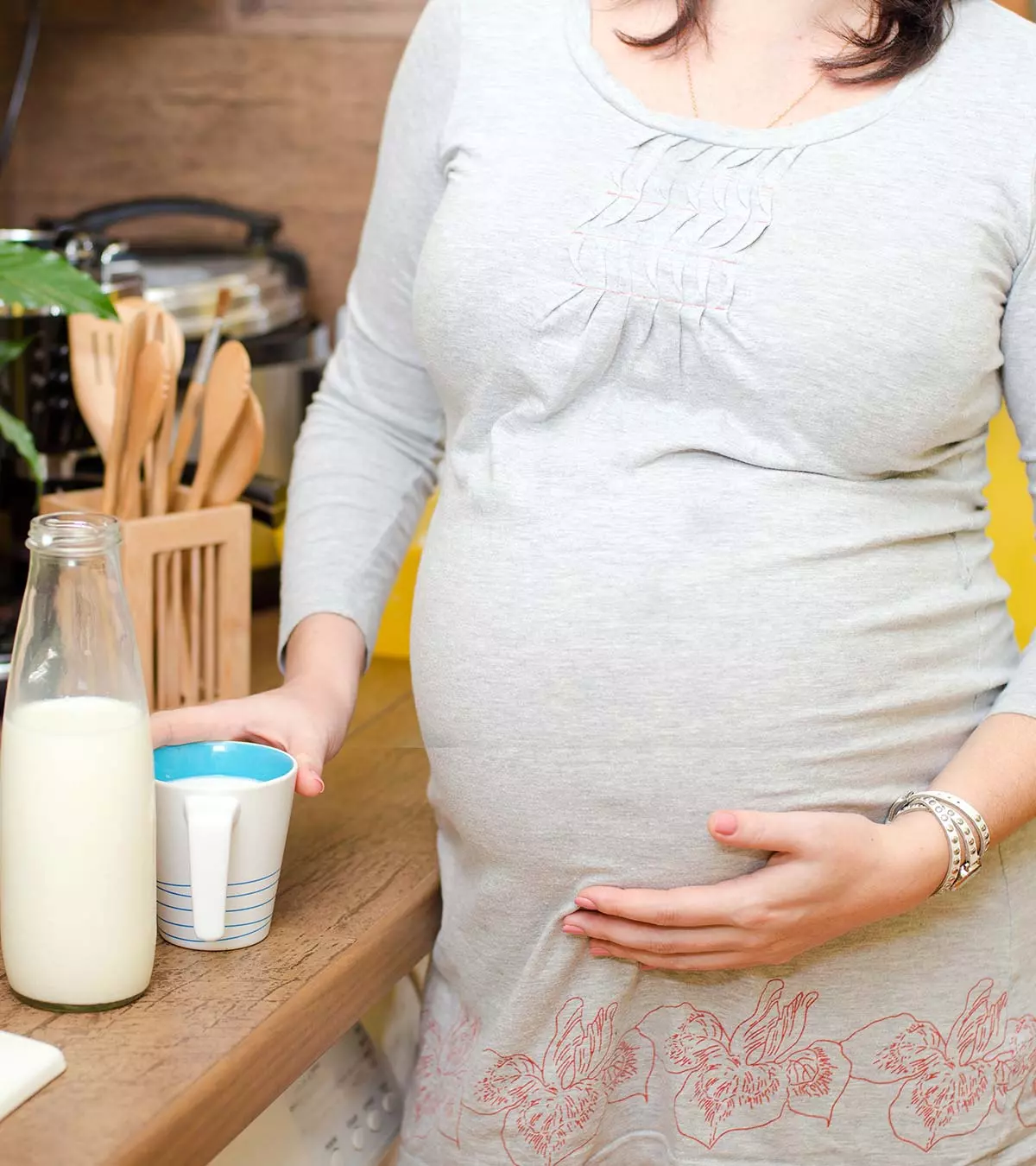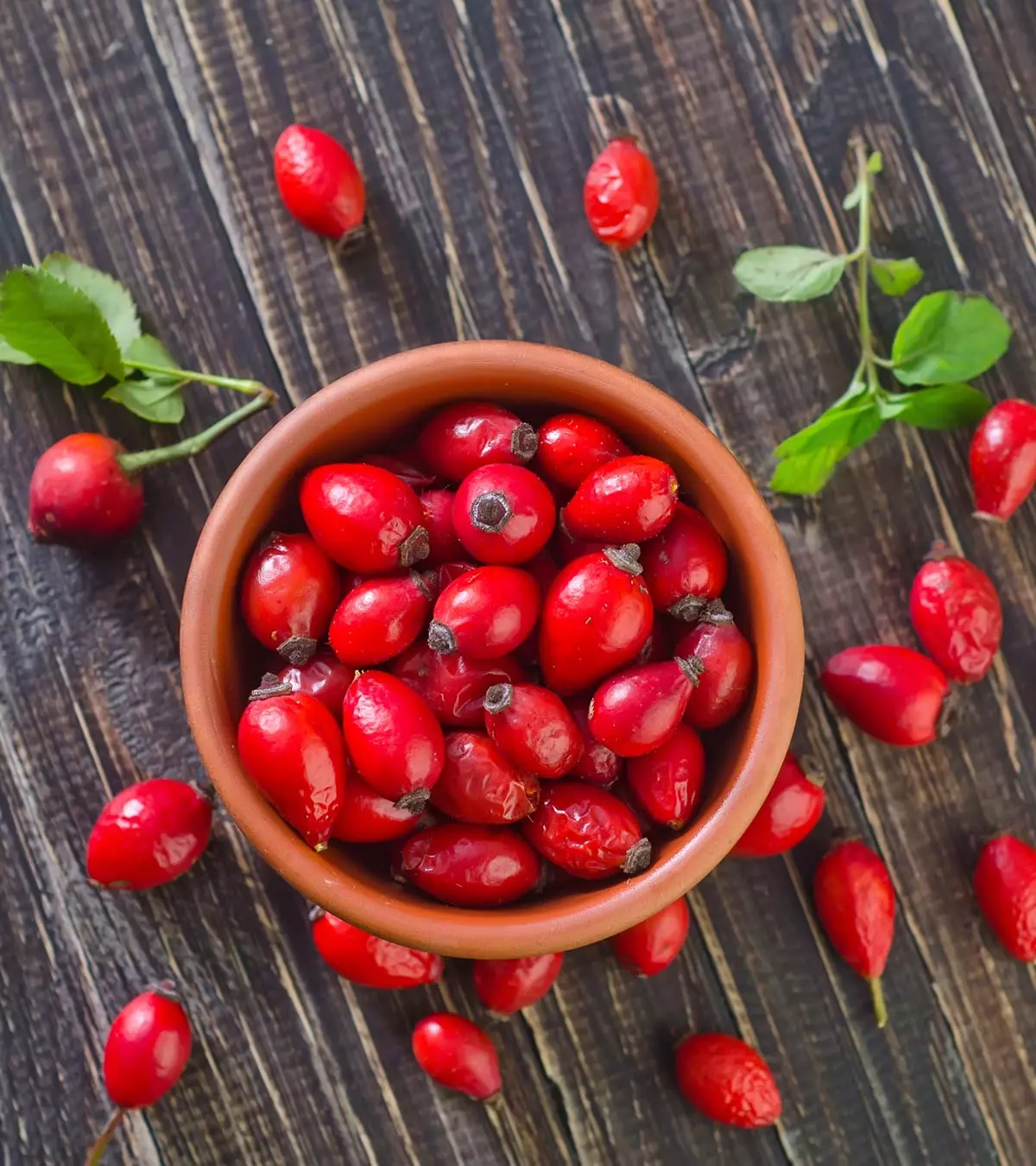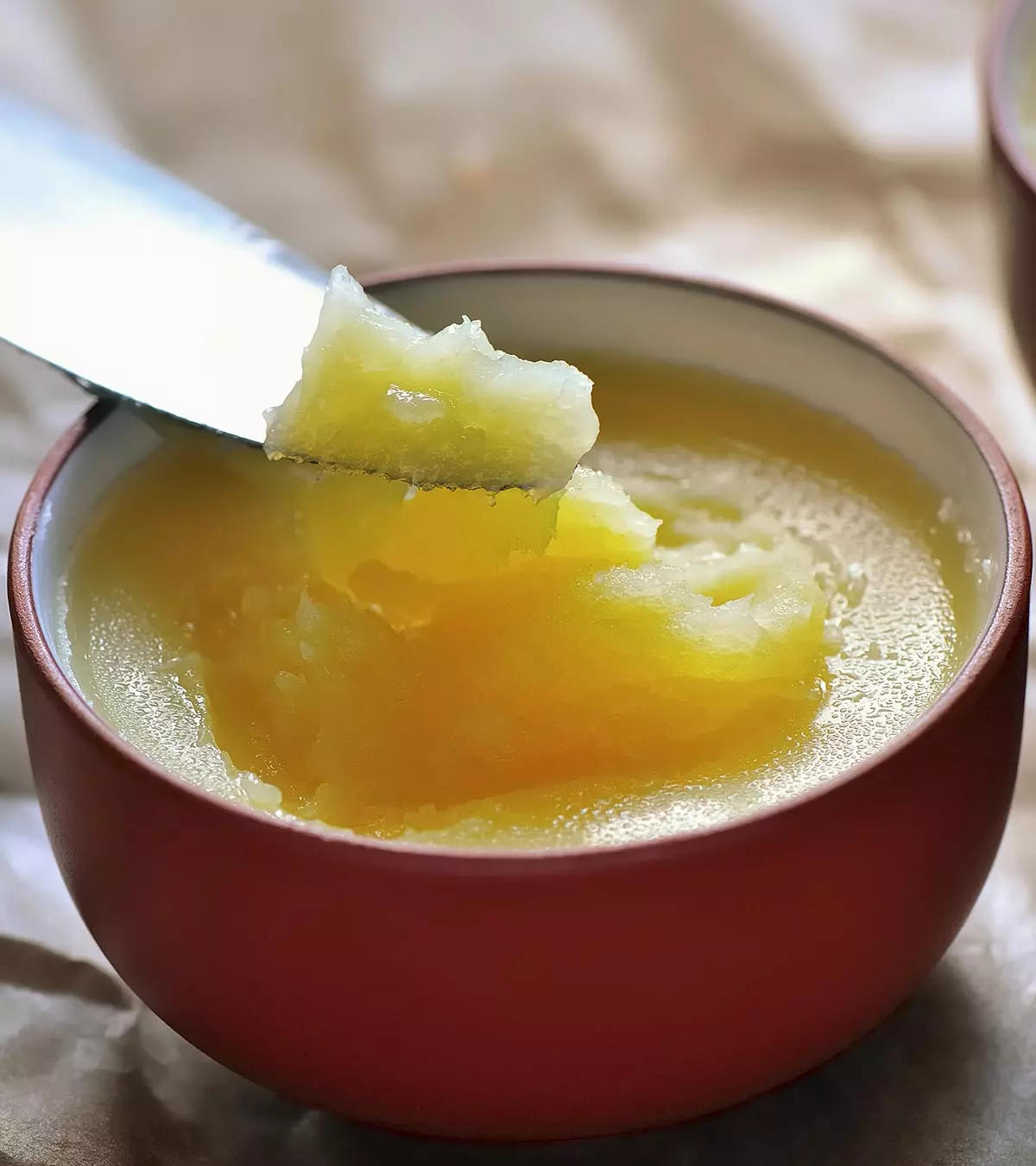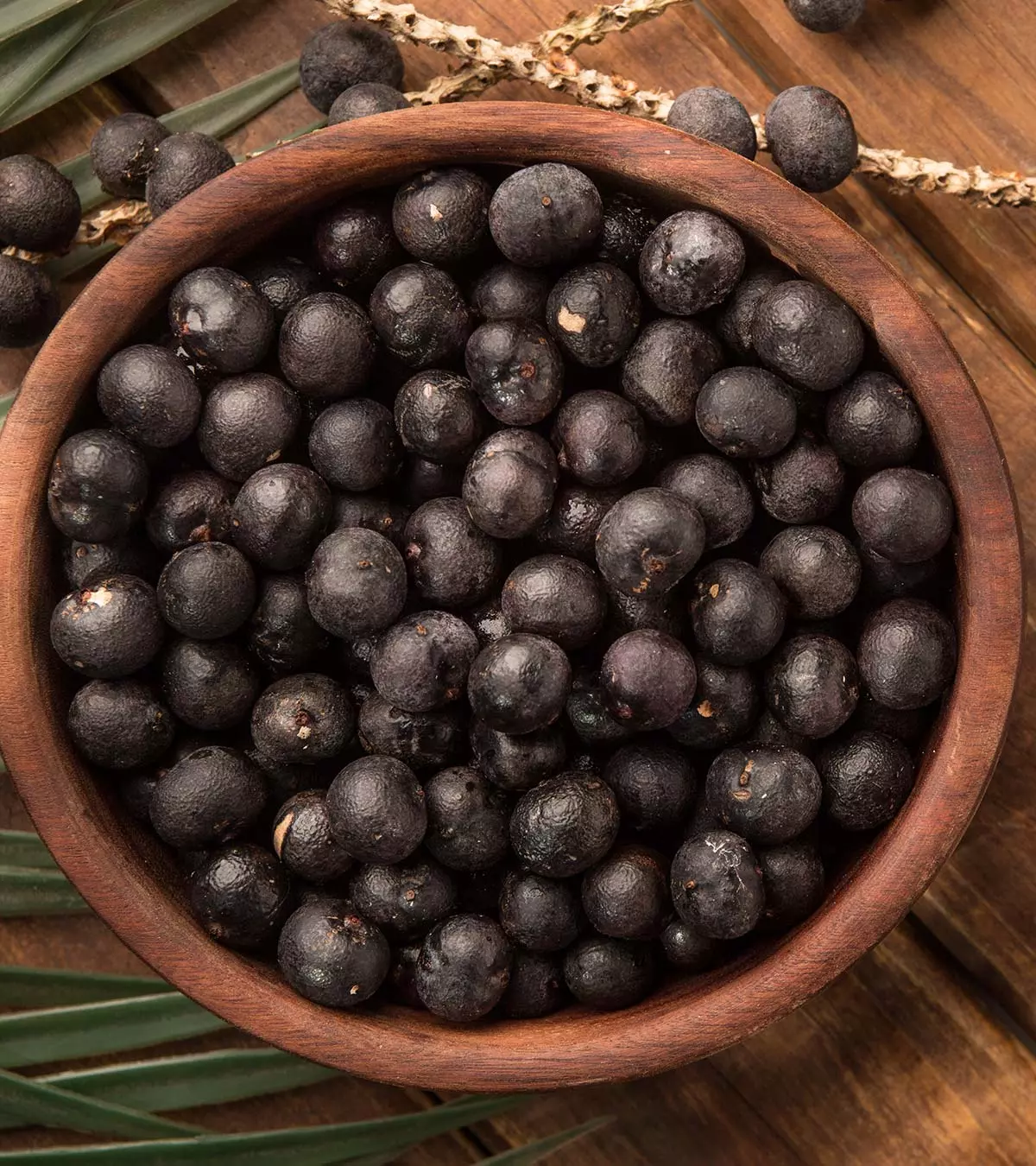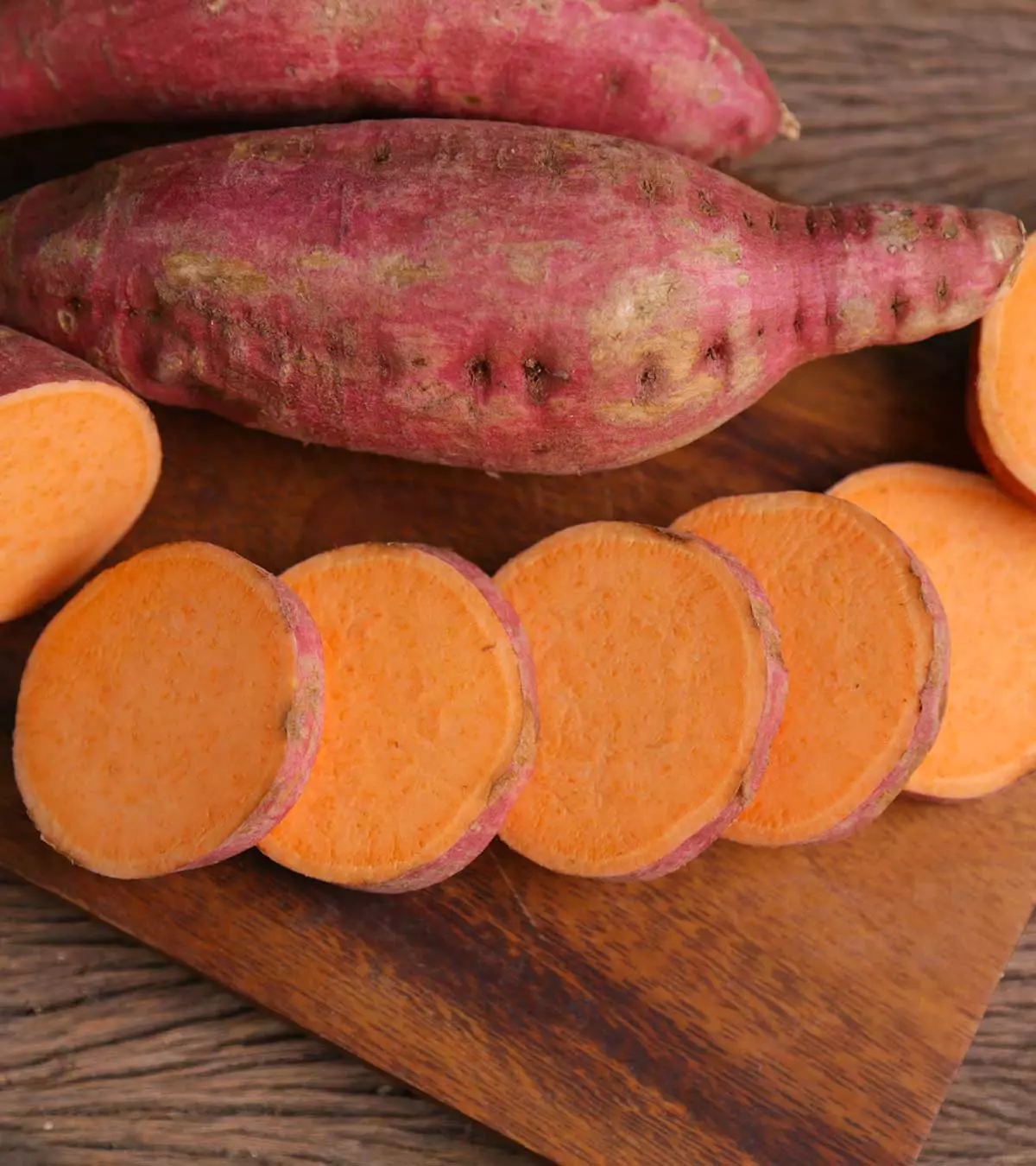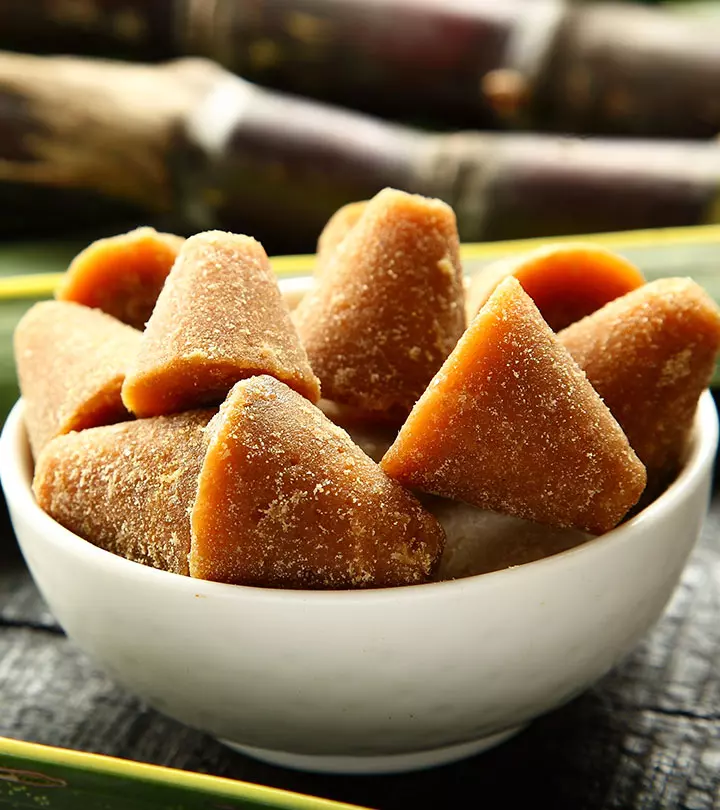
Image: Shutterstock
Jaggery is a sweetener made of sugarcane juice. Although it is commonly used to prepare several sweet dishes, you might not know if it is safe to consume jaggery during pregnancy.
Jaggery is a healthier alternative to refined sugar and is also packed with essential nutrients like iron and mineral salts that can benefit both the mother and the developing baby. If taken in the right amount, jaggery acts as a good nutritional source that helps in a healthy pregnancy.
Read the post to know more about the nutritional value of jaggery, its health benefits during pregnancy, and its side effects if taken in excess amounts.
Key Pointers
- Jaggery is a sweetener obtained from sugarcane juice or date palm.
- Consuming moderate amounts of jaggery throughout pregnancy is safe and beneficial for both mother and baby.
- Excessive jaggery consumption can cause weight gain and raise blood sugar levels, particularly in cases of gestational diabetes.
- Jaggery is a versatile sweetener that can be added to tea, milk, desserts, candies, muffins, toffees, and cakes.
Is It Safe To Eat Jaggery During Pregnancy?
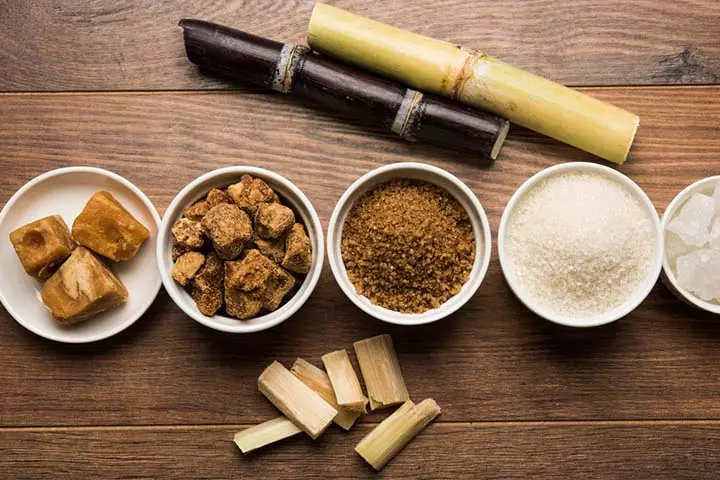
You can eat jaggery (gur) in pregnancy but in limited quantity. Jaggery is rich in iron and contributes to your daily iron requirement (1). The natural source of sugar boosts the overall health of the expectant mother.
According to Trista Best, a registered dietitian from Dalton, Georgia, “Unlike white sugar, jaggery retains natural molasses, which gives it a dark color and rich flavor. It is packed with essential minerals like iron, magnesium, and potassium, making it a healthier alternative to refined sugar.”
It is also known to purify blood and breast milk, thereby offering nourishment to the baby during pregnancy and even after birth. Therefore, you may replace refined sugar with jaggery in your diet.
 Experts say
Experts sayNutritional Value Of Jaggery
Jaggery is referred to as “superfood sweetener,” that is mostly made of sugar cane, and also date palm. Good quality jaggery contains more than 70% sucrose, less than 10% glucose, and fructose, and less than 5% minerals. The nutrition may vary, depending on the source used to make it (cane or palm).
According to a study published in the Journal of Food Processing and Technology, half a cup (100g) of jaggery contains calcium (40 to 100mg), potassium (1056mg), magnesium (70 to 90mg), sodium (19 to 30mg), iron (10 to 13mg), phosphorus (20 to 90mg), zinc (0.2 to 0.4mg), manganese (0.2 to 0.5mg), copper (0.1 to 0.9mg), and chloride (5.3mg). It also contains trace amounts of vitamins (2).
 Did you know?
Did you know?Do You Need Jaggery During Pregnancy?

Jaggery not only adds sweetness to your food but is also believed to offer benefits because of its nutritional profile. The sweetener is believed to be beneficial in the following ways. However, there is not enough scientific evidence to back these claims:
- Iron helps in reducing the chances of anemia that is common during pregnancy.
- Potassium helps in stabilizing electrolytic balanceiA balance of minerals in the body, which is essential for normal body functioning. in the body and treating edemaiNoticeable swelling resulting from excessive fluid retention in the body. .
- Vitamins and minerals help nourish bones and joints.
- Unrefined sugars are believed to solve digestive issues by triggering digestive enzyme secretion, thereby aiding digestion. It could help smooth bowel movements without even containing fiber.
- Minerals and antioxidants in jaggery are said to support immunity and treat illnesses such as colds and flu.
Possible Side Effects Of Jaggery During Pregnancy
Although jaggery could be beneficial, consuming it in large amounts is not a good idea since it is the same as sugar just unrefined. Also, adulterated or impure jaggery may lead to some problems. Therefore, exercise caution before including jaggery in your prenatal care diet.
- Eating jaggery excessively will increase the calorie count and might lead to weight gain.

- Jaggery has a glycemic index of 84.1 at one hour after consumption. Sugars in jaggery can raise blood sugar levels, which will be problematic if you already have gestational gestational diabetesiPregnancy-specific condition characterized by high blood sugar levels, which may pose a risk of complications. .
- Impure jaggery may have microbes.
In order to make sure that you are not having excessive amounts of sugar, replace the regular sugar with jaggery.
Can Eating Jaggery Lead To Low Birth Weight In Babies?
There is no evidence that consumption of jaggery during pregnancy can cause low birth weight in newborns. Maternal factors that cause low birth weight in babies include diseases during pregnancy, alcohol consumption, poor weight gain and nutrition, the use of tobacco products, and a history of having a low birth weight baby. Also, premature babies weigh less than full-term babies (3).
Excess jaggery consumption can be a concern for women with gestational diabetes or with a risk of developing it. However, poorly managed gestational diabetes leads to high birth weight in babies (4). If you have concerns regarding the potential birth weight of your baby, speak to your OB/GYN on your next visit.
Ways To Include Jaggery In Your Pregnancy Diet
Jaggery is a versatile ingredient that can be used in several ways.
- Add to herbal teas to sweeten
- Include it in desserts and puddings
- Make healthy snacks by mixing it with peanuts or grated coconut to make sweets and satisfy your cravings.
- Add to toffees, muffins, and cakes
- Mix jaggery with warm milk
Frequently Asked Questions
1. Does jaggery produce heat in the body?
Ayurveda considers it a traditional medicine and believes that jaggery can produce heat in the body, help balance doshas and give instant energy. However, clinical evidence supporting jaggery’s heat-producing effects is sparse.
2. Which is better, jaggery or brown sugar?
Jaggery is an unrefined natural sweetener made from sugarcane juice, while brown sugar is made from refined white sugar with added molasses, which gives it its brown color and mild flavor. Since jaggery is relatively less processed and contains more minerals and antioxidants, it is considered a healthier alternative to white sugar.
3. How much jaggery is safe to consume per day during pregnancy?
There is no set amount of jaggery that pregnant women can consume daily during pregnancy. Experts advise pregnant women to take jaggery in moderation as a part of a well-balanced diet.
Jaggery is a sweetener made from date palm or sugar cane, and it contains more sucrose than glucose. It is safe to consume moderate amounts of jaggery during pregnancy. Moreover, it is the best alternative to sugar in pregnancy and helps maintain a balanced diet. Jaggery also benefits your daily iron requirements. The nutritional value of jaggery may vary depending on what it is made of. However, avoid excess consumption since it may increase calories and weight gain.
Infographic: Do You Need Jaggery During Pregnancy?
Jaggery is typically made from the sap of palm trees or sugarcane juice. Moderate consumption of jaggery during pregnancy can support overall health and well-being. The following infographic provides more information on the benefits and side effects of including jaggery in your pregnancy diet. Be sure to read it and save it for future reference. Illustration: Momjunction Design Team
Illustration: Jaggery During Pregnancy: Safety Health Benefits And Side Effects

Image: Dall·E/MomJunction Design Team
References
1. Chander Shekhar Gautam et al.; Iron Deficiency in Pregnancy and the Rationality of Iron Supplements Prescribed During Pregnancy; Medscape J Med (2008)
2. Nath A et al.; Review on Recent Advances in Value Addition of Jaggery based Products; Journal of Food Processing & Technology (2015)
3. Low Birth Weight; Stanford Medicine
4. Gestational Diabetes; Texas Health and Human Services
5. What To Eat Before, During And After Pregnancy; UNICEF
6. V. Manimozhi Selvi et al.;The Art and Science of Jaggery Making: A Review; Agricultural Reviews (2022)
Community Experiences
Join the conversation and become a part of our nurturing community! Share your stories, experiences, and insights to connect with fellow parents.
Read full bio of Jyoti Benjamin
- Trista Best is a registered dietitian at Balance One Supplements, Environmental Health Specialist, and Adjunct Nutrition Professor. She completed her Masters of Public Health Nutrition from Liberty University and BS Dietetics from the University of Alabama before getting Dietitian Registration in 2018.
 Trista Best is a registered dietitian at Balance One Supplements, Environmental Health Specialist, and Adjunct Nutrition Professor. She completed her Masters of Public Health Nutrition from Liberty University and BS Dietetics from the University of Alabama before getting Dietitian Registration in 2018.
Trista Best is a registered dietitian at Balance One Supplements, Environmental Health Specialist, and Adjunct Nutrition Professor. She completed her Masters of Public Health Nutrition from Liberty University and BS Dietetics from the University of Alabama before getting Dietitian Registration in 2018.
Read full bio of Rebecca Malachi
Read full bio of Swati Patwal
Read full bio of Lorraine Teron





